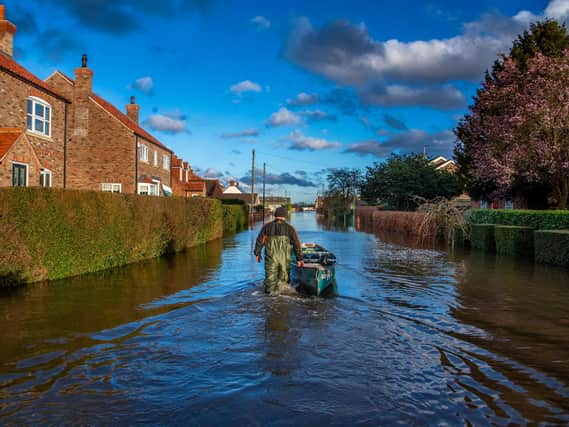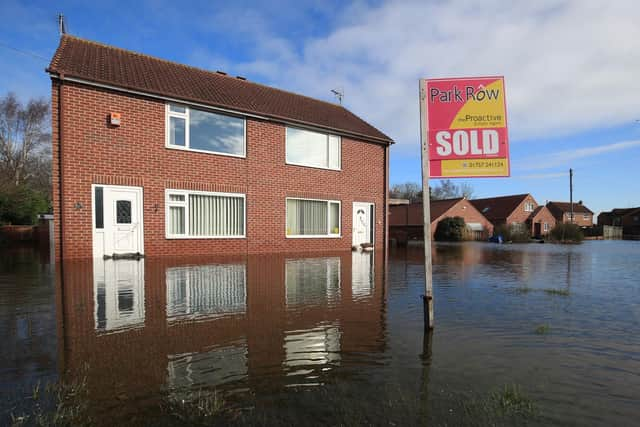Homeowners 'need access to £5,000 grants before flooding strikes' says insurer


The Swiss insurance company say people are at risk of “double disaster” from flooding and the Covid-19 pandemic and reforms are needed to allow homeowners to make proactive improvements before another catastrophe unfolds.
It comes months after Storms Ciara and Dennis were estimated to have caused more than £360 million worth of damage.
Advertisement
Hide AdAdvertisement
Hide AdAround 100 homes in Snaith and East Cowick were the latest to flood in Yorkshire after the River Aire spilled out of its normal washlands in February.


Ahead of Wednesday's summer statement Zurich said its own research suggests that investing £1 in prevention saves on average £5 in future losses.
They say households face a “postcode lottery” as £5,000 flood resilience grants are only handed out in areas designated by the government after a flood event.
Zurich believes grants should be available all year round to help people in high flood risk areas protect their homes before flooding hits and say this would be an effective way of boosting economic recovery.
Advertisement
Hide AdAdvertisement
Hide AdLaura McAlpine, Zurich’s Head of Public Affairs, said: “Hundreds of thousands of households have been left more vulnerable as a result of the worst public health crisis in a generation.
“Even relatively minor flooding would place disproportionate strain on people’s jobs, finances and mental health.
“If towns are hit by flooding in the coming months, the impact would be magnified, with particularly severe consequences for the most vulnerable in society.”
According to official figures more than 3.5million properties in England and Wales are at risk from some form of flooding.
Advertisement
Hide AdAdvertisement
Hide AdOf these, around one in 12 are at high risk - equivalent to 290,000 homes.
Halifax MP Holly Lynch said: “The Government’s decision to deny resilience grants to those who flooded for a second time in 2020, really rubbed salt in the wounds for people in the Calder Valley who flooded in both 2015 and 2020.
“Zurich make an important point about flood prevention, but we must ensure that flood resilience measures are ‘joined-up’ right across the catchment if we are to hold water further upstream and have any success in protecting homes and businesses in the future.”
Rev Eleanor Robertshaw, the vicar in Snaith, said most victims of February’s flooding are still in temporary accommodation or caravans.
Advertisement
Hide AdAdvertisement
Hide AdThe flooding hit just before the onset of the pandemic and insurance and even grants from a charity fund had been held up.
She said: “People were only just starting to even comprehend what happened just as lockdown happened. It has been really tough.”
She said Zurich’s proposal seemed a good idea - but warned that flooding did not always turn out according to predictions.
She said: “In East Cowick they are about a mile from the river.The river did what they weren’t expecting it to - perhaps the flooding modelling needs to be done again.”
Advertisement
Hide AdAdvertisement
Hide AdIn York the Environment Agency is making around £7,500 worth of property flood resilience available to more than 300 homes.
They include measures like flood doors and air brick covers.
A Defra spokesperson said: “The £5,000 grant scheme exists to help homes or businesses become flood resilient after an incident – but this is just one part of a package of support we have revealed to better protect the nation from flooding and climate extremes.
“This is why we are investing £5.2 billion over the next six years to protect 336,000 homes and businesses, and rolling out a range of preventative schemes in communities across the country."
Comment Guidelines
National World encourages reader discussion on our stories. User feedback, insights and back-and-forth exchanges add a rich layer of context to reporting. Please review our Community Guidelines before commenting.